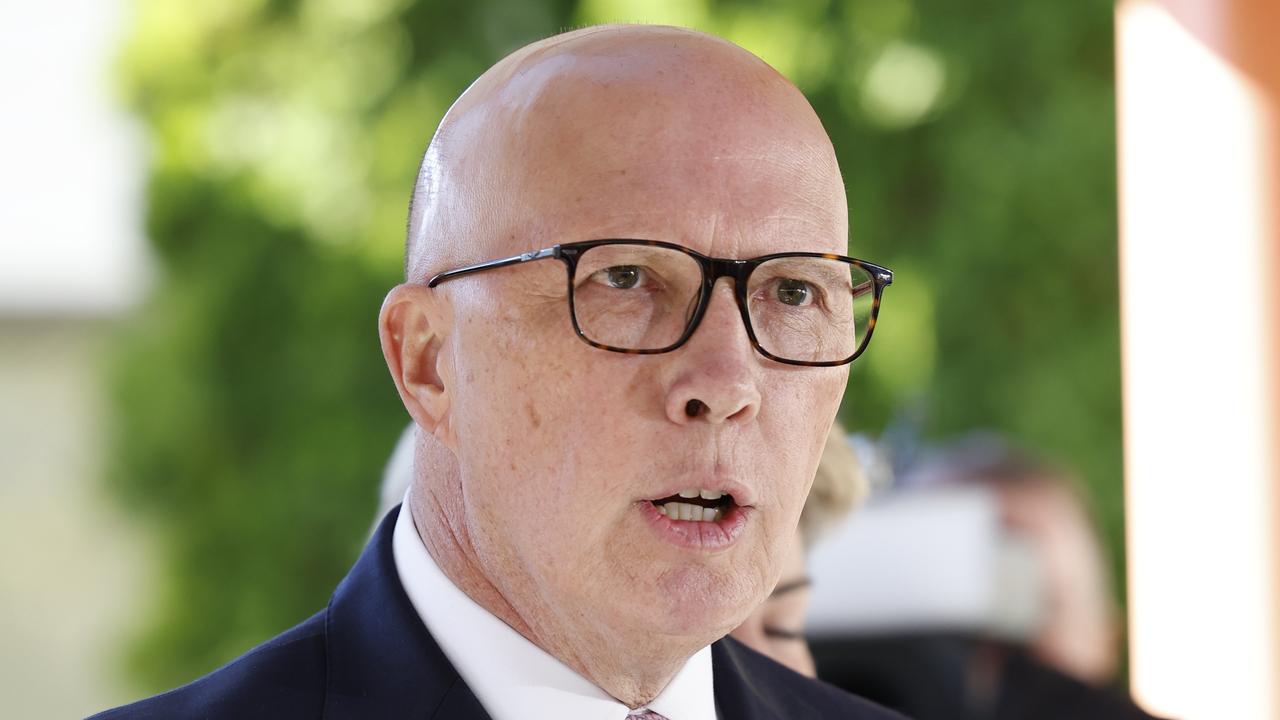James Campbell: Bill Shorten exits as the great ‘nearly man’ of Australian politics
What does it say about the government’s prospects that Bill Shorten — whose ambition to reach the top job burned as brightly as anyone in Australian political history — has decided to pull the pin now?
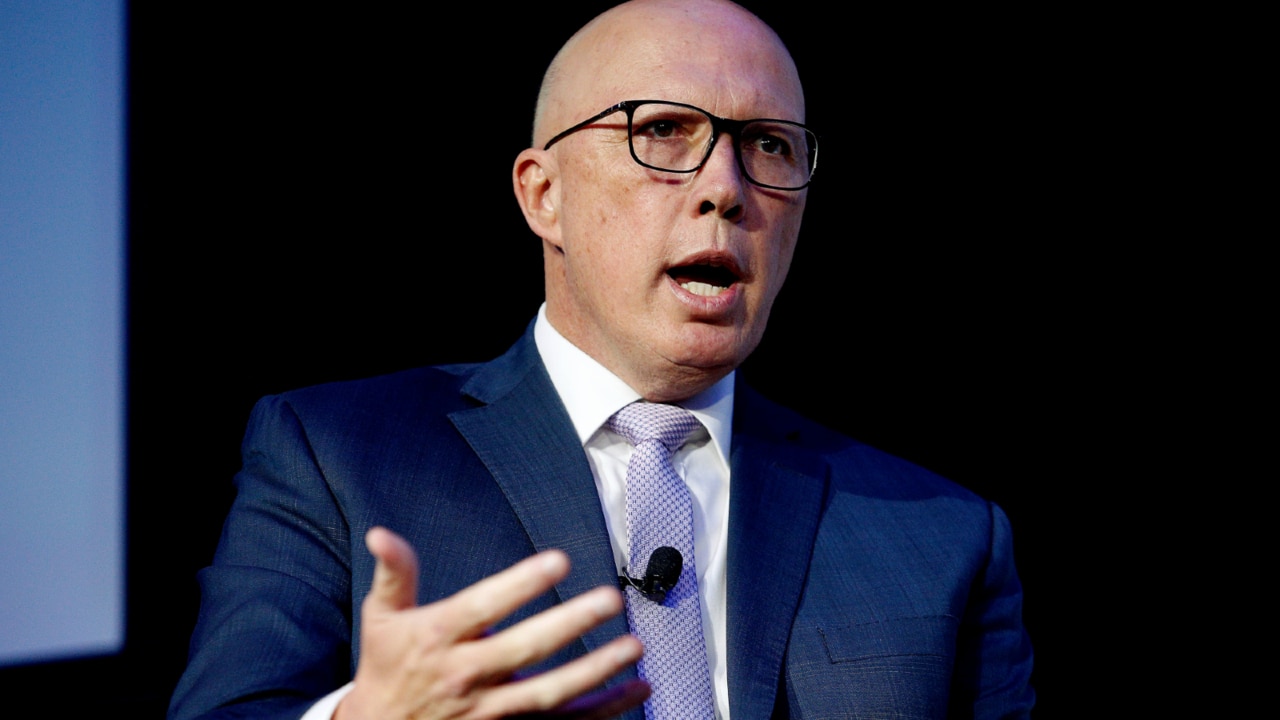
James Campbell
Don't miss out on the headlines from James Campbell. Followed categories will be added to My News.
And so it ends. Bill Shorten, whose ambition to reach the top job burned as brightly as any in our history, will leave parliament as one of the “nearly men” of Australian politics.
The shock, to those who have known him since his days as a force in Young Labor in the 1980s, is that he has decided to exit now.
Most politicians who had come as close but oh-so-narrowly failed to win two elections as Shorten did in 2016 and 2019 would not have stuck around.
The fact he stayed after Scott Morrison’s “miracle win”, putting his head down in the far-from-glamorous role he was given by Anthony Albanese, led those of us who had followed his career closely, to assume that, whatever he said, deep down he dreamt he could defy the odds to claim the prize he believed should be his.
What does it say that he has decided to pull the pin now, when the polls are showing that if Labor is lucky to make it back into office next year it will be there on the sufferance of the Greens and the Teals?
Ignore the kind words from his successor in the Prime Minister’s courtyard today – the smile on Anthony Albanese’s face said it all.
‘Who’d have thought that after all that dangling of diplomatic appointments, it would be a job in academia that finally got him to clear off?’ he seemed to be thinking.
There’s no love lost on Shorten’s part either.
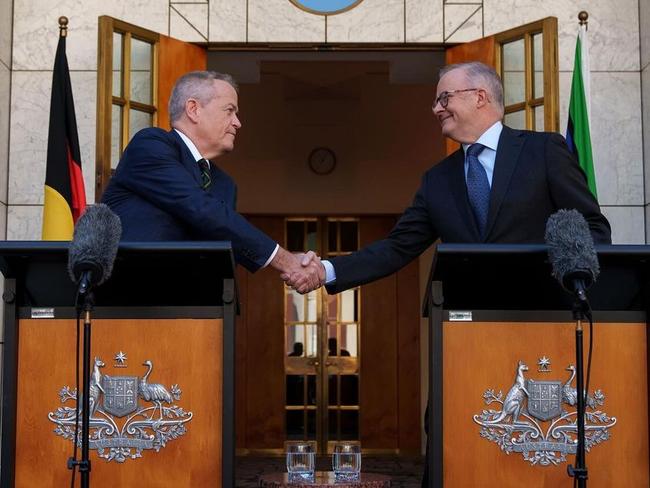
Friends say he has made it clear he thinks Albanese’s timidity is the root cause of the government’s predicament.
Whatever his other shortcomings — it can be hard to shift his conversation to non-Bill-related topics for example — timidity as a minister was not one of them.
Indeed as the father of the NDIS he joins an elite list: ministers who will be remembered because they changed Australia.
It’s hard to think of anyone aside from Arthur Calwell, who oversaw the start of the post-war migration boom, and the champion of protectionism Sir John McEwen, who leave office with a bigger legacy.
Whether you think that in Shorten’s case this is a good thing will depend on what you think about the NDIS.
There is no doubt it is has transformed the lives of thousands of people.
But there’s also no escaping it’s been rorted with an inch of its life and by 2034 is on track to be consuming the equivalent of three per cent of Australia’s GDP.
In hindsight, the biggest political error of Shorten’s career was not the basket of tax rises that doomed his 2019 election bid.
No, the political error which means he joins Kim Beazley and Andrew Peacock on the list of Australian political also-rans, was snatching the leadership after Australians threw Kevin Rudd out in 2013.
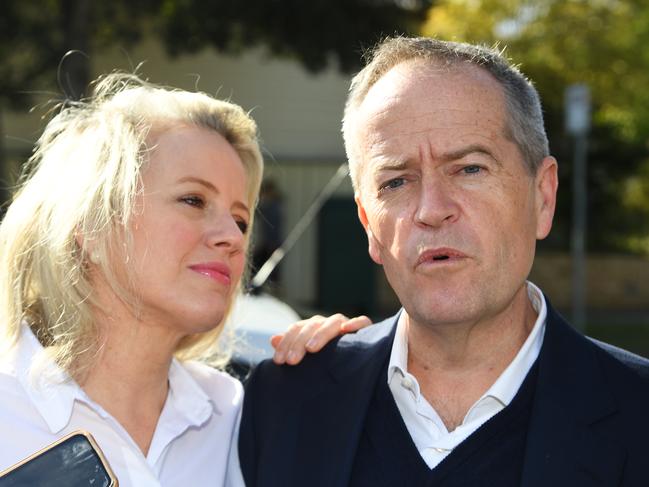
Shorten was aware that history showed that no politician who has taken over as opposition leader in the aftermath of their party’s defeat had ever made it to The Lodge.
He was advised to sit tight and wait but his impatience, combined with his boundless self-belief, allowed him to dream he might be the first.
It was the same impatience at Kevin Rudd’s failure to promote him that had lured Shorten into joining in the coup against the Ruddster, which doomed that government.
Surprisingly however right up until the night Morrison snatched victory out from under him in May 2019, it did indeed seem likely Shorten might be the one to break the curse of the first-term opposition leader.
The majority of the Abbott government’s mistakes, such as the political suicide note Joe Hockey delivered in the form of the 2014 budget, were self-generated.
But Shorten was able to capitalise on them so relentlessly that within two years the Liberals were so scared of him that they dumped Abbott in favour of Malcolm Turnbull.
At the 2016 election Shorten won 14 seats, reducing the Coalition to a majority of one.
For the next two years, as Turnbull struggled and failed to find an energy policy that the Liberal Party could agree upon, it looked as though the 2019 election would be a foregone conclusion.
This overconfidence led Shorten to the fatal political error of his 2019 election manifesto with its changes to franking credits and negative gearing.
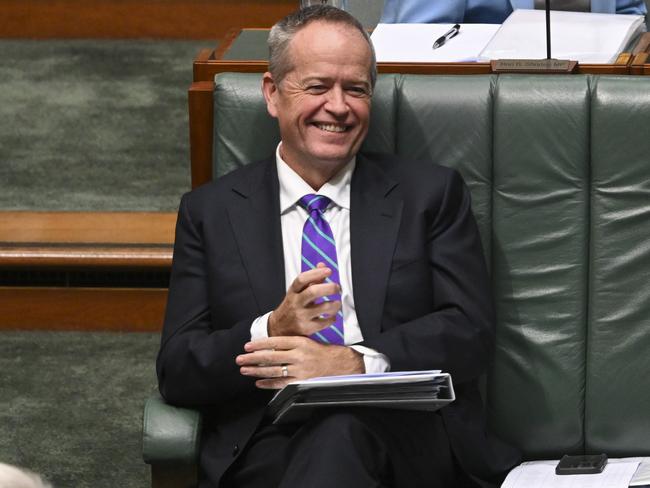
To understand why Shorten, a ruthless political operator as the best of them, thought he could get away it, you need to go back to the disaster of the Rudd-Gillard-Rudd governments.
In the aftermath of that defeat the belief had taken root in the Labor leadership group that never again would a leader be allowed to rule by diktat.
Henceforth, there would it would be Kumbaya with every group in Caucus given “buy in” to maintain unity.
So for example if someone wanted to promise the Commonwealth would pay for solar panels on school roofs, they were accommodated.
This led to the proliferation of expensive spending promises which, like the one above, brought them no votes, and since these promises had to be paid for somehow, they also ended up with the promised tax increases that cost Shorten the election.
The years after that defeat have been truly bittersweet for Shorten.
On the one hand there was the triumph of this championing of the victims of the Robodebt scheme, the exposure of which did so much to undermine the reputation of the previous government.
And despite the scale of the challenge he has enjoyed throwing himself into the task of saving his beloved NDIS.
Against this he has had to endure being sidelined away from defence and foreign affairs, the areas where he would have most liked to make a contribution.
If he had been in either of those jobs, Australia’s support for Ukraine in its fight for survival would have been much greater than the feeble quantities of aid we have offered.
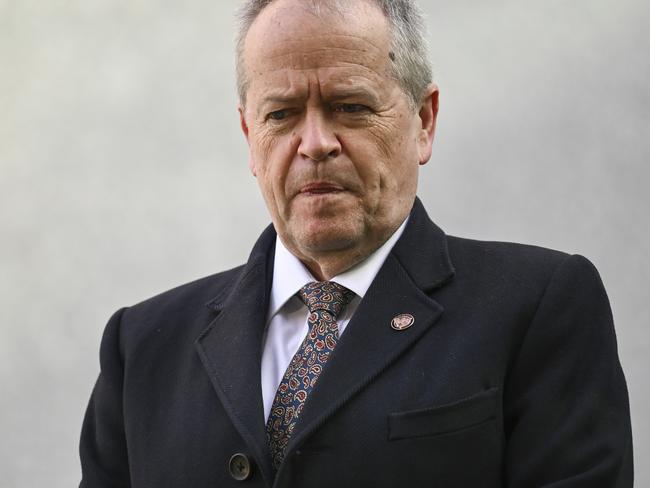
Likewise if Shorten had been foreign affairs minister in the past year, Australia’s relations with Israel would not be in the mess they are today.
On top of that frustration, Shorten has also had to endure humiliations and even tragedy closer to home.
In 2020, his Victorian factional ally, Adem Somyurek, was expelled over branch stacking allegations leading to a federal intervention that side-lined Shorten and his allies, handing power to his onetime protégé rival in the Right, Richard Marles.
Then on the eve of the 2022 election his closest political ally in the Caucus and personal friend of decades, Senator Kimberley Kitching, died suddenly.
Around the same time his ally on the Left of the Victorian ALP, Kim Carr, lost preselection.
Shorten might still be a national figure able to command attention but as a factional power broker, he is much diminished.
But even though the internal numbers have moved against him, Shorten must still wonder if back in 2013 he would have been better off allowing Albanese to have two his two goes before stepping in to coast to victory by promising nothing against a tired and worn out government.
Last year he told someone that he had learned in his career that “the most important thing in politics is timing”.
But to go back to where I began, what does it say about the Government’s prospects that Bill Shorten has decided it isn’t worth sticking around?


